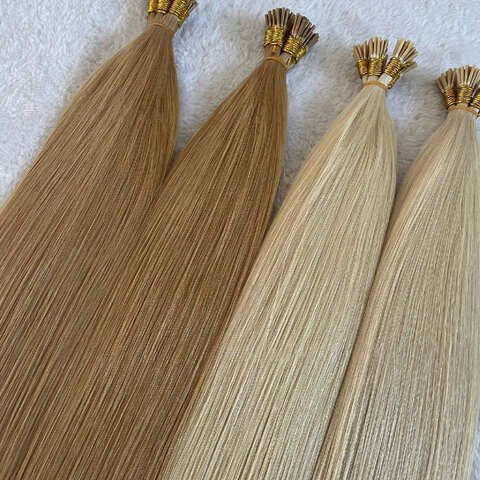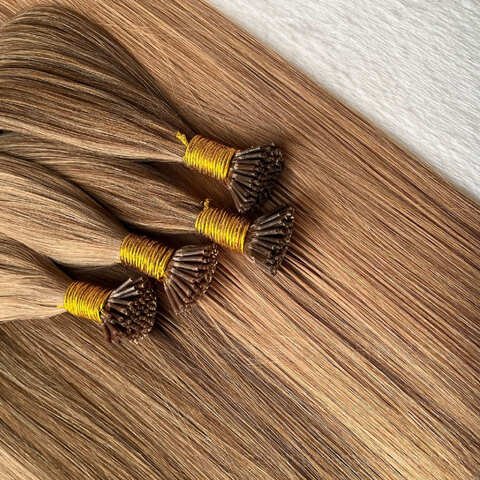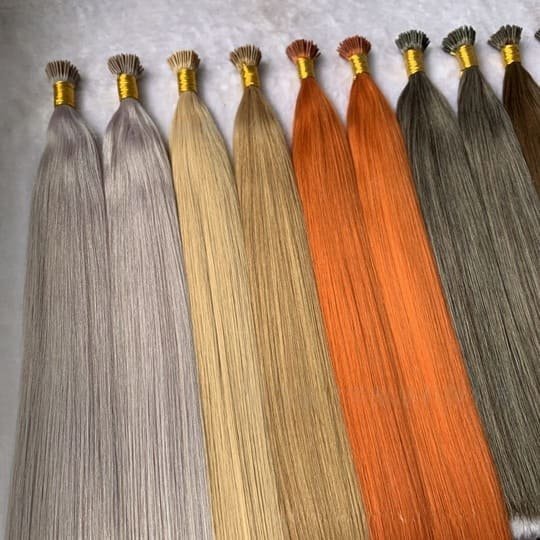Choosing the right hair type for your wig can make all the difference. Discover which hair types are best for wigs with this helpful guide.
Choosing the best hair type for your wig can be a daunting task, but it doesn’t have to be. Sometimes you won’t know how to make a choice. However, finding the perfect hair type for your wig is crucial to achieving a natural and flattering look. Whether you’re looking for a wig for fashion purposes or medical reasons, understanding the different hair types and their characteristics is essential. In this ultimate guide, we’ll cover everything you need to know about selecting the best hair type for your wig, including the most popular hair types, their benefits and drawbacks, and how to care for them. So, whether you’re a first-time wig buyer or a seasoned pro, read on to discover the ultimate guide to choosing the best hair type for your wig.

Synthetic hair vs. human hair wigs
When it comes to choosing the best hair type for your wig, the first decision you’ll need to make is whether to go for a synthetic or human hair wig. Both options have their pros and cons, and the choice ultimately comes down to your personal preferences and needs.
1. Synthetic hair wigs
Synthetic hair wigs are made of synthetic fibers.They are typically less expensive than human hair wigs and are available in a wide range of colors and styles. Synthetic hair wigs also require less maintenance than human hair wigs, as they maintain their shape and style even after washing.
However, synthetic hair wigs have some drawbacks. They are not as versatile as human hair wigs and cannot be styled with heat tools, such as curling irons or straighteners. Synthetic hair wigs also tend to have a shiny, plastic-like appearance, which can make them look less natural.
2. Human hair wigs

Human hair wigs are made of real human hair, human hair wigs are more natural and realistic, softer to the touch. They are more versatile than synthetic hair wigs and can be styled with heat tools just like your natural hair. Human hair wigs also tend to last longer than synthetic hair wigs, as they can be washed and styled without losing their quality.
However, human hair wigs are more expensive than synthetic hair wigs and require more maintenance. They need to be washed and styled regularly to maintain their quality, and they can also be affected by weather conditions, such as humidity or rain.
Understanding wig hair grades
When shopping for a human hair wig, you may come across terms such as “Remy” or “non-Remy.” These terms refer to the hair grade, means the raw material of human hair.
1. Remy hair
Remy hair is considered the highest quality human hair for wigs. It is collected from a single donor and is unprocessed, which means that the cuticles are intact and aligned in the same direction. This results in a wig that looks and feels natural, with a smooth and silky texture.
2. Non-Remy hair
Non-Remy hair is collected from multiple donors and may be processed to remove tangles and knots. This can result in a wig that is less natural-looking and may have a coarser texture. However, non-Remy hair wigs are typically less expensive than Remy hair wigs and can be a good option for those on a budget.

Straight, wavy, curly, kinky: Different hair textures for wigs
When it comes to selecting the best hair type for your wig, the texture of the hair is just as important as the quality. There are four main types of hair textures for wigs: straight, wavy, curly, and kinky.
1. Straight hair
Straight hair is the most common hair texture for wigs. It is easy to maintain and can be styled in various ways, such as with bangs or layers. However, straight hair may look flat and lifeless without proper styling.
2. Wavy hair
Wavy hair is a popular choice for wigs, as it adds volume and dimension to the hair. It has a natural-looking wave pattern that can be styled in various ways, such as with loose waves or beachy curls.

3. Curly hair
Curly hair is a great option for those who want a voluminous and bouncy wig. It has a defined curl pattern that can be styled in various ways, such as with tight curls or loose ringlets. However, curly hair wigs require more maintenance than straight or wavy hair wigs and may be more prone to tangling.
4. Kinky hair
Kinky hair is the most textured hair type for wigs. It has a tight curl pattern that resembles natural African American hair. Kinky hair wigs require more maintenance than other hair types and may be more prone to tangling. However, they can also look incredibly natural and add volume and dimension to the hair.

Choosing the best hair type for your lifestyle
When selecting the best hair type for your wig, it’s important to consider your lifestyle and daily routine. Here are some factors to consider:
1. Time and maintenance
If you have a busy schedule or prefer low-maintenance hairstyles, a synthetic hair wig may be a better option for you. Synthetic hair wigs require less maintenance and can be styled quickly and easily.
2. Activity level
If you lead an active lifestyle or participate in sports, a human hair wig may be a better option for you. Human hair wigs are more durable and can withstand more wear and tear than synthetic hair wigs.
3. Climate
If you live in a humid or rainy climate, a synthetic hair wig may be a better option for you. Synthetic hair wigs are less affected by weather conditions and will maintain their shape and style even in high humidity.

Factors to consider when selecting a wig hair type
When selecting the best hair type for your wig, there are several factors to consider:
1. Skin tone
Consider your skin tone when selecting the color and shade of your wig.
2. Face shape
Consider your face shape when selecting the style and length of your wig. Choose a style that complements your face shape and enhances your natural features.
3. Budget
Consider your budget when selecting the quality and type of hair for your wig. Synthetic hair wigs are typically less expensive than human hair wigs, but may not look as natural.

Maintaining your wig hair type
Here are some tips for maintaining your wig hair type:
1. Washing
Use a mild shampoo to clean your wig. Use cool water and avoid rubbing or twisting the hair.
2. Styling
Style your wig with heat tools on a low heat setting.
3. Storage
Store your wig on a wig stand or mannequin to maintain its shape and style. Keep it away from direct sunlight and heat.

Styling options for different wig hair types
The styling options for your wig hair type will depend on the texture and quality of the hair. Here are some tips for styling different wig hair types:
1. Straight hair
Style straight hair wigs with layers, bangs, or curls for added volume and dimension.
2. Wavy hair
Style wavy hair wigs with loose waves or beachy curls for a natural, carefree look.
3. Curly hair
Style curly hair wigs with tight curls or loose ringlets for a voluminous, bouncy look.
4. Kinky hair
Style kinky hair wigs with twists or braids for added texture and dimension.

Where to buy high-quality wigs with different hair types
There are many places to buy high-quality wigs with different hair types, both online and in-store. Here are some options:
1. Online
Online retailers such as Amazon, Wigs.com, and Wig Outlet offer a wide range of wigs with different hair types at varying price points.
2. In-store
Wig shops and beauty supply stores offer a range of wigs with different hair types, as well as personalized fitting and styling services.
Conclusion
Choosing the best hair type for your wig can be a daunting task, but with the right knowledge and guidance, it doesn’t have to be. Whether you opt for a synthetic or human hair wig, consider the hair grade, texture, and maintenance requirements when making your decision. With proper care and maintenance, your wig can look and feel natural, enhancing your beauty and confidence. So, take your time, consider your options, and choose the best hair type for your wig today!





